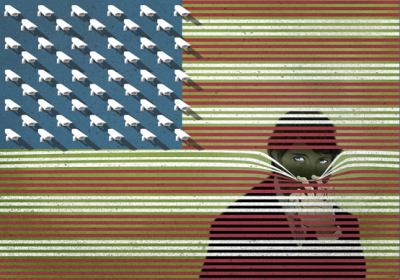GCHQ, NSA Collected Webcam Images from 1.8 Million Yahoo Users
Under a program code-named “Optic Nerve,” the British Government Communications Headquarters (GCHQ), working in coordination with the American National Security Agency (NSA), has been collecting webcam images in bulk and saving them to agency databases.
According to documents obtained by the Guardian
(“Yahoo webcam images from millions of users intercepted by GCHQ”), GCHQ targeted 1.8 million webcam users in a single six-month period in 2008. Collection of images has been carried out indiscriminately, without regard to whether users were targets of an intelligence investigation.
The operations collected imagery from the webcams by saving screen shots every five minutes during live video chats.
The GCHQ documents also mention possible surveillance efforts involving other web-based video technologies, including the Xbox 360 “Kinect” camera, and indicate that Optic Nerve was still active as of 2012.
Yahoo has responded with a statement condemning the surveillance operations, saying,
“This report, if true, represents a whole new level of violation of our users’ piracy that is completely unacceptable, and we strongly call on the world’s government to reform surveillance law consistent with the principles we outlined in December.”
Despite Yahoo’s criticisms, the major telecommunications companies have been collaborating with the NSA’s surveillance operations for years.
The PRISM surveillance program, for instance, has been systematically spying on millions of users of Skype, Google, Facebook, YouTube, Microsoft, Yahoo, Apple, and others since 2007. An NSA document leaked by Edward Snowden last year stated that PRISM relies on “assistance of communications providers in the US” and specifically lists AOL, Apple, Facebook, Google, Microsoft, PalTalk and Yahoo with the dates on which they “joined” PRISM.Optic Nerve has also involved experimental efforts with facial-recognition technology. A GCHQ document cited by the Guardian shows that the agency has sought to develop the capability to search through ongoing webcam sessions for faces already included in the database.
The program collected information via GCHQ’s “Internet cable taps” operated by the agency’s TEMPORA program, through which the agency dips directly into the fiber-optic lines that carry vast quantities of data around the world.As the Guardian noted in relation to the close collaboration of US intelligence with its British partner, “Optic Nerve was based on collecting information from GCHQ’s huge network of internet cable taps, which was then processed and fed into systems provided by the NSA. Webcam information was fed into NSA’s XKeyscore search tool, and NSA research was used to build the tool which identified Yahoo’s webcam traffic.”
The Guardian reported that the webcam material “included large quantity of sexually explicit images
,” estimating the quantity of sexually explicit material at between 3 and 11 percent of the images collected. As the GCHQ document put it, “it would appear that a surprising number of people use webcam conversations to show intimate parts of their body to the other person.”These latest revelations further expose the contempt of the US and British governments for the democratic rights and privacy of the world’s population. Far from narrowly targeted operations directed against terrorists and criminals, these agencies are running mass data collection programs directed against the population as a whole. The state is seeking to accumulate as much information, in whatever form it can use, for the purpose of targeting political organizations and individuals.
These revelations come on the heels of reports that the spy agencies monitor the personal habits of targets as part of their human intelligence (HUMINT) efforts. The operations, revealed in a leaked GCHQ document, “The Art of Deception: Training for a New Generation of Online Covert Operations,” seek to discredit and disrupt groups deemed hostile to the state, through systematic blackmail and intimidation. The most intimate aspects of Internet users’ lives are being actively compiled by government units such as the Joint Threat Research Intelligence Group (JTRIG), in preparation for political and psychological operations aimed at suppressing opposition to the ruling elite.
Also this week, the Justice Department sought permission from the FISA court for the NSA to retain telephone metadata on an indefinite basis. This data includes phone records for millions of Americans, showing when they placed calls, with whom they spoke, and for how long.
“The United States must ensure that all potentially relevant evidence is retained which includes the [business records] metadata obtained in bulk from certain telecommunications service providers pursuant to this court’s production orders,” said the Justice Department filing.
Current rules drawn up by the FISA court limit retention of metadata by the surveillance agency to five years. In its filing submitted Wednesday, the Justice Department asserted that data must be kept indefinitely to preserve evidence relevant to lawsuits brought against the government by the Electronic Frontier Foundation and other civil liberties groups.
Original article: By Thomas Gaist Global Research, February 28, 2014
 Total Members: 14197
Total Members: 14197 Latest: Levine
Latest: Levine Total Posts: 43453
Total Posts: 43453 Total Topics: 16545
Total Topics: 16545 Online today: 2994
Online today: 2994 Online ever: 51419
Online ever: 51419 Total Members: 14197
Total Members: 14197 Latest: Levine
Latest: Levine Total Posts: 43453
Total Posts: 43453 Total Topics: 16545
Total Topics: 16545 Online today: 2994
Online today: 2994 Online ever: 51419
Online ever: 51419